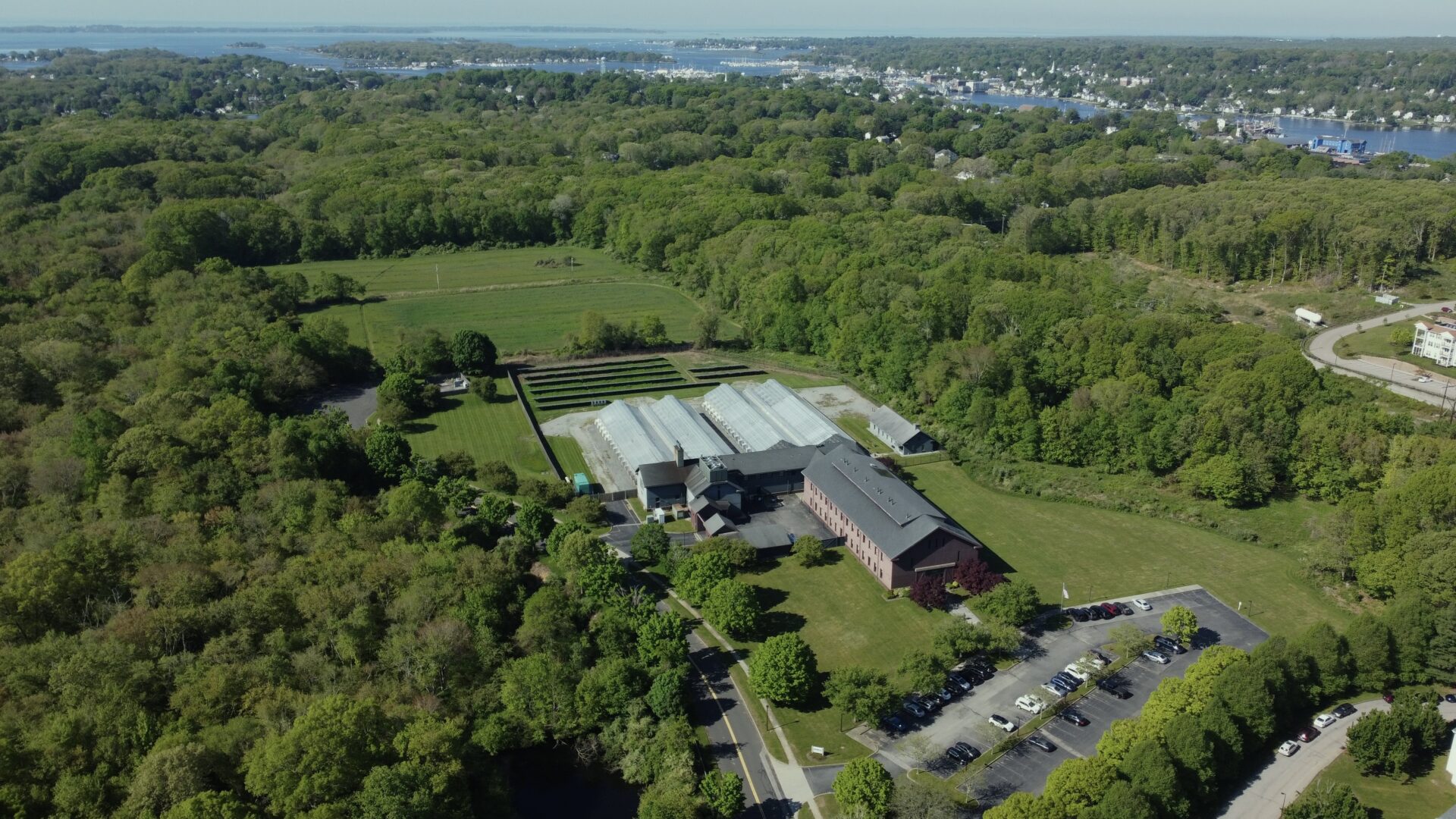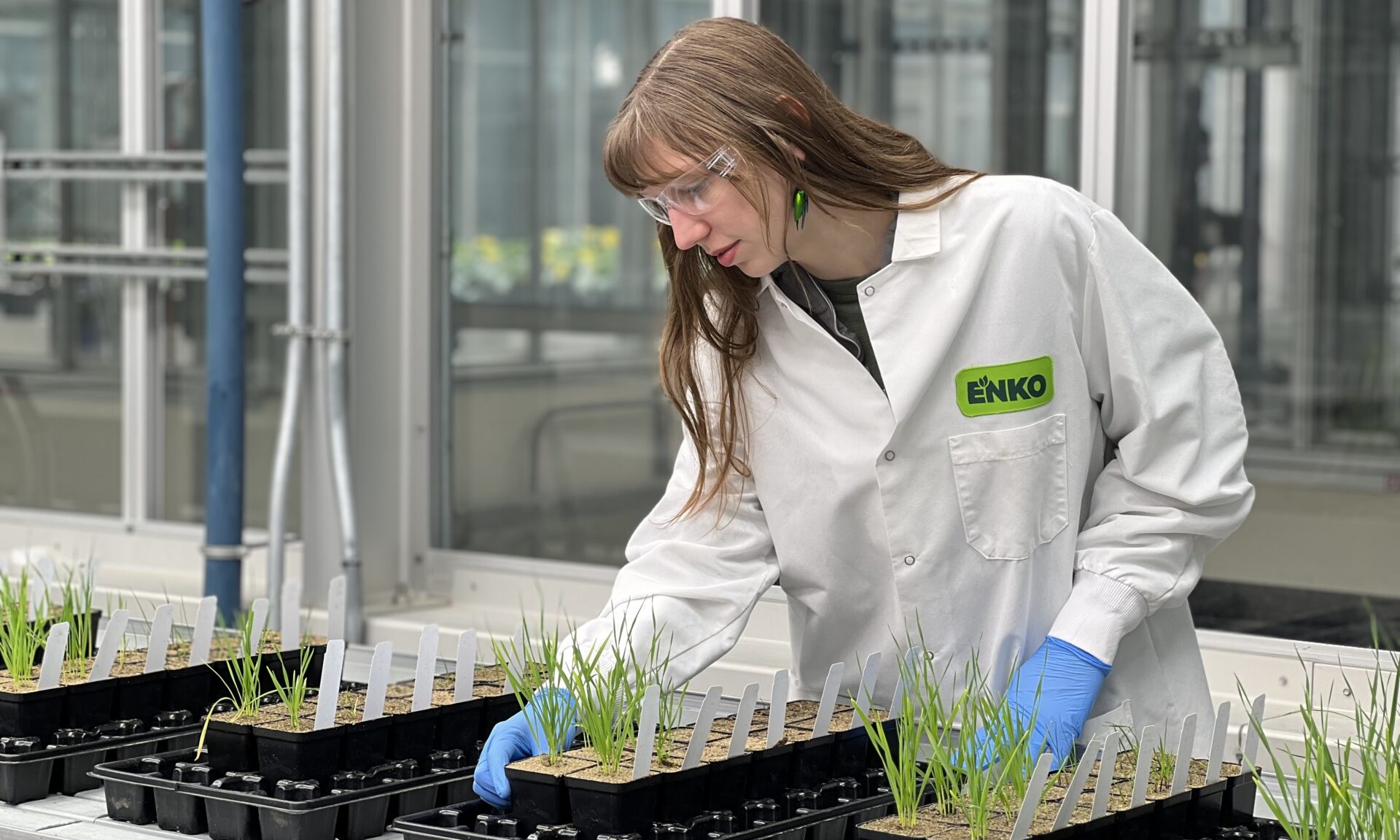“You can’t spend a lot of money on things that are never going to work from a regulatory perspective or commercial perspective,” says Enko Chem CEO Jacqueline Heard.
That might sound obvious, but the ag biologics industry — for which Enko Chem discovers and develops novel products for farmers — has a long history of peddling bathtub brews that raise both safety and efficacy concerns. On top of that, bio-based crop protection products are expensive to develop and take far longer to bring to market than today’s fast-paced expectations are willing to wait.
To combat that, Enko, which describes itself as “an AI-informed crop health company,” has developed a platform that reduces the time and cost of developing products to determine what does and does not work from a regulatory and commercial perspective.
At the World Agri-Tech show last week in the UK, Heard sat down with AgFunderNews to discuss a new capability for the platform and what should happen next to progress the crop protection industry along.
AgFunderNews (AFN): You recently announced a new mode of action discovery capability. Tell us more about that.
Jacqueline Heard (JH): We established a platform called ENKOMPASS and it really is a differentiator in terms of the time and speed it takes to discover novel, more sustainable chemistry.
We recently added this capability around discovering new modes of action, [which is] one of the bottlenecks in the industry, especially with insecticides.
[The capability] uses the ENKOMPASS platform to very rapidly look at an entire pathway and identify the targets that can be drugged and have a phenotypic effect of interest. So we can do that in less than four months. That gives you a tool compound that you can then go out and verify its commercial level activity.
It’s very challenging, generally in the sector, to identify biologically active compounds against targets rapidly. But this allows you to have an approach where you’re not putting all of your eggs in one basket, you can actually survey pathways over time, and then come up with options that you can then test so it increases the likelihood that you’d be successful. It also gives you that ability to really be so targeted to safety and sustainability right from the get go.

AFN: What are some of the benefits of having this suite of modes of action?
JH: One is being able to identify a variety of targets that maybe don’t exist in humans, and where there is the option for designing chemistry that is very selective. If it’s not specific to the pest, you at least need to have a handle on the ability to design chemistry that that is very selective from the target, either for human tox[icity] concerns or even beneficials.
There’s been no new mode of action for herbicides in the last 30 years; that points to how challenging it is to do this right. With insecticides, it’s incredibly important, because I think there’s been a reduction in the the idea that you can actually develop and commercialize a product for insecticides for the EU because of the challenging regulatory environment.
All of these things together really drive this need for additional options in order to develop safe chemistries.
AFN: How big of a challenge is the regulatory piece right now for this industry?
JH: With all of the changes that are happening in crop protection, where the time to discover and develop molecules is being extended, the regulatory hurdles are extremely high.
This makes it so that you can’t do things the way that you did [previously]. Not only are [older solutions] not right for sustainability reasons, they’re also not feasible. They don’t make business sense if it takes so long and it’s so expensive to do it.
So that’s why we’ve developed this platform to reduce the time and cost, especially in the early days when you really need to fail fast. You can’t spend a lot of money on things that are just never going to work from a regulatory perspective or commercial perspective. So that’s where our our focus is: on everything up until the going into regulatory to get what works, kill everything else, and then bring good, sustainable chemistry.
AFN: Along those lines, you were also involved in the creation of the Ag Playbook. How will that initiative benefit the industry?
JH: I think it’s very helpful to create a common language and an understanding about how to move things forward. [The road to] commercialization is not just about an interesting discovery. [When] the rubber hits the road it’s whether or not it’s a commercial product. Those two things can be very different.
I think a lot of knowledge is held within big companies. The reason I wanted to be involved [with the creation of the Playbook] is because I wanted to encourage innovators to go down the path and to be successful.

AFN: Has progress in biologicals and alternative crop protection slowed?
JH: A lot of the lack of progression is made even more challenging when capital becomes constrained, so the high cost of capital is just a risk-off environment.
[In] the normal process of funding early-stage companies, if we’re really sourcing innovation, it [isn’t] unusual for half of [the companies funded] to fail, because in order to be successful, you have to fund risk. Then you get this environment where Ag is a fairly new ecosystem in relative terms, for example to healthcare.
Combine that with the high cost of capital and the risk-off environment, and I think it the perceptions of [biologicals] not working is high.
I do think there’s also a a need for different types of capital coming into the sector.
AFN: Chemicals vs. biologicals or chemicals and biologicals?
JH: There’s this false dichotomy between these different crop protection modalities, where one is good and one is bad. I think a lot of capital went into biologics thinking that it was going to be so much easier to get
It’s been a couple of decades [of development in biologicals] and they’re proving to be very challenging. I think there’s a place for biologicals in food, but efficacy really has to trump because you need to have things that work for growers.
So why can’t you have both? Why can’t you have modalities that really work, like small molecules, but then really develop them with the eye that you need to have a different safety guard around things from the get go and use a systems approach to design things that are safer and more sustainable anyway.
It’s not a black and white, there’s a continuum. We need as much innovation as possible to solve all the issues facing agriculture.
Read the orginal article: https://agfundernews.com/enko-chem-boss-on-biologicals-we-need-all-as-much-innovation-as-possible-to-solve-all-the-issues-facing-agriculture


